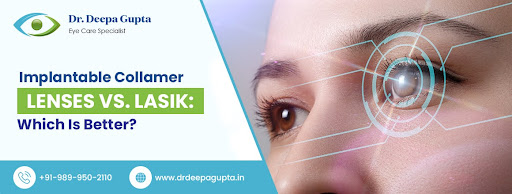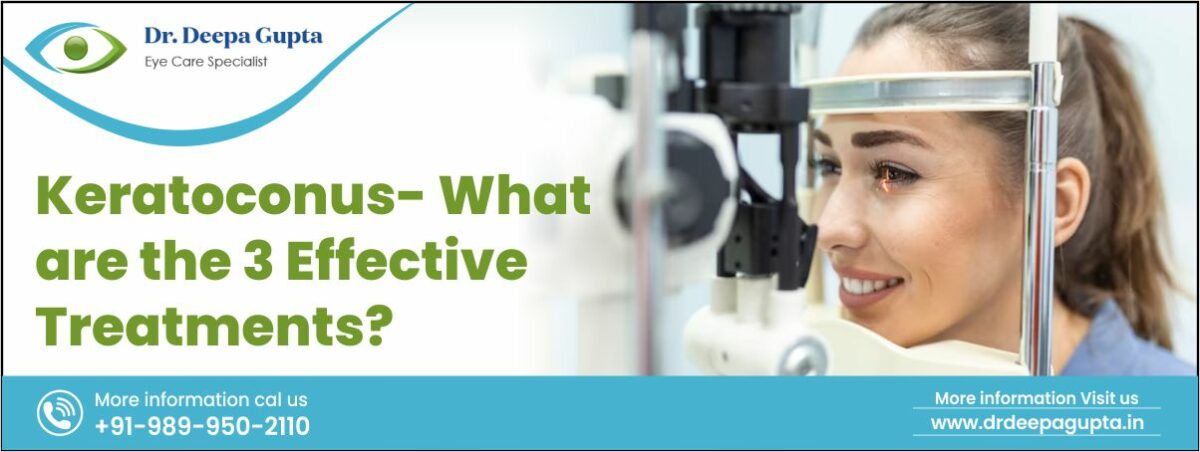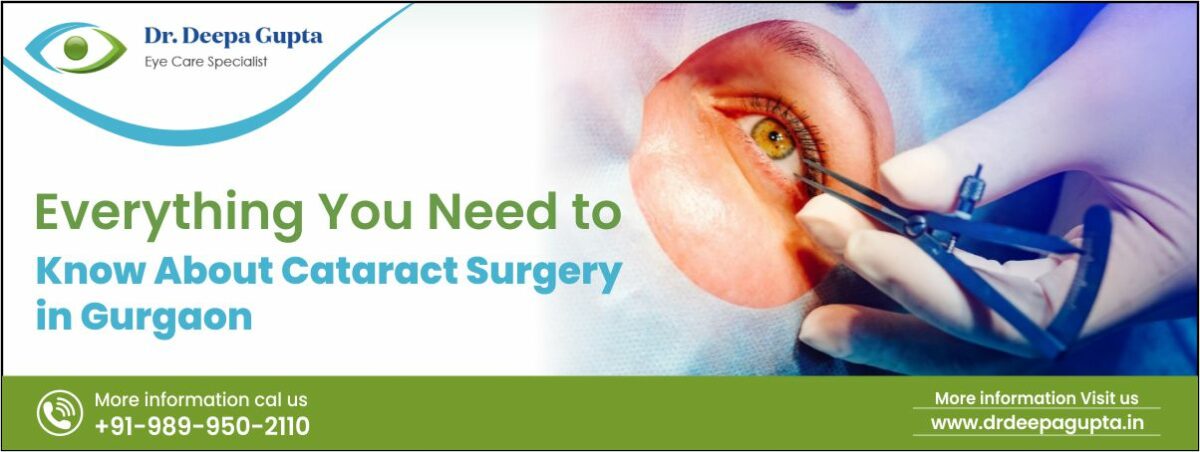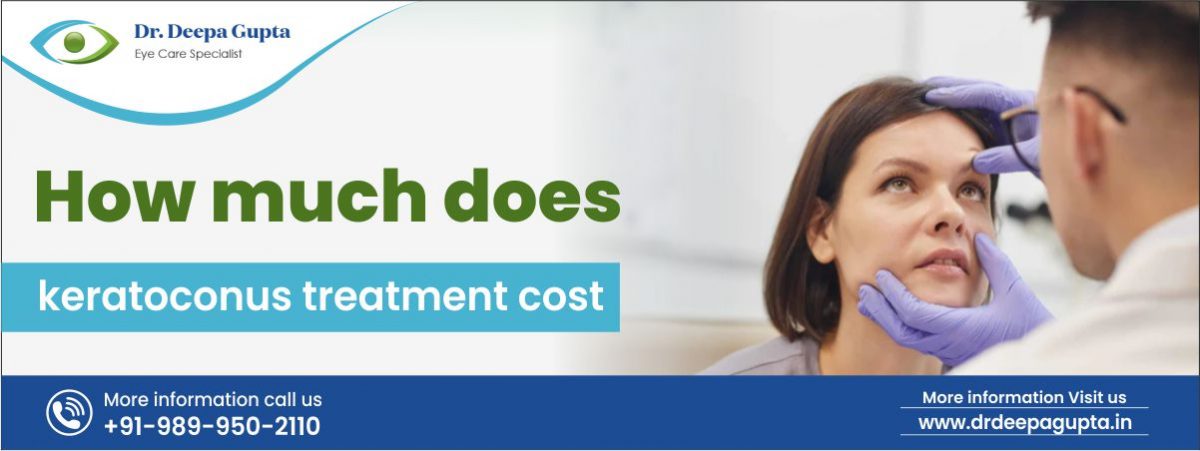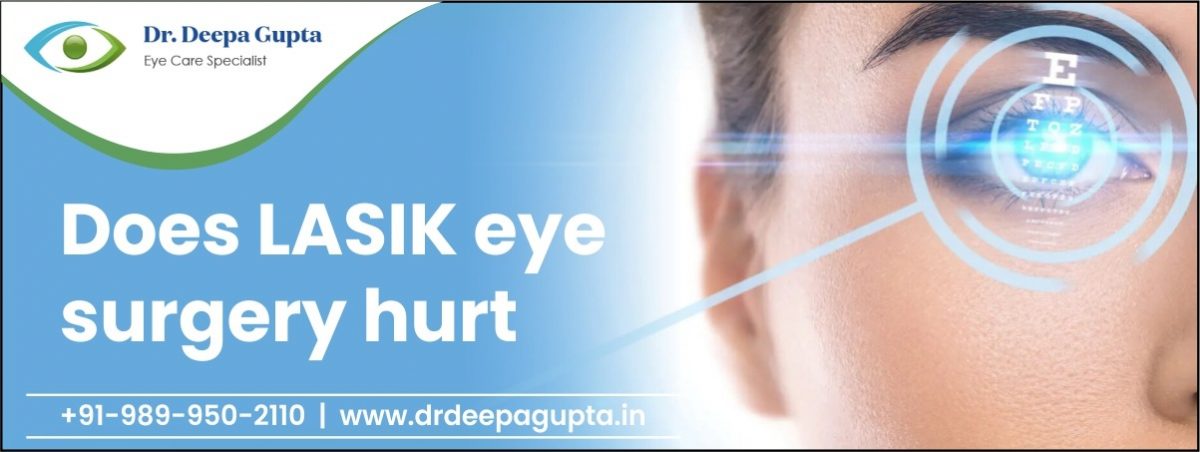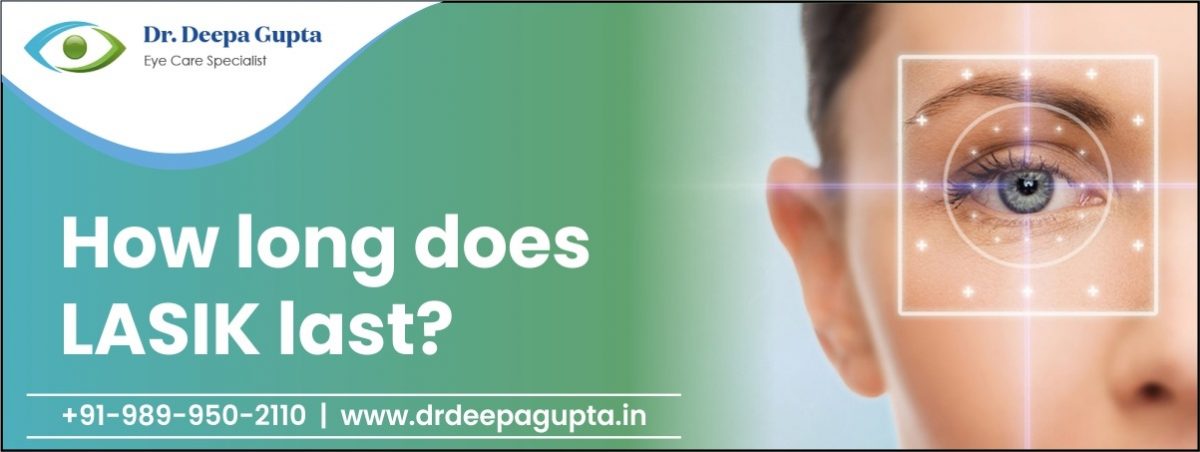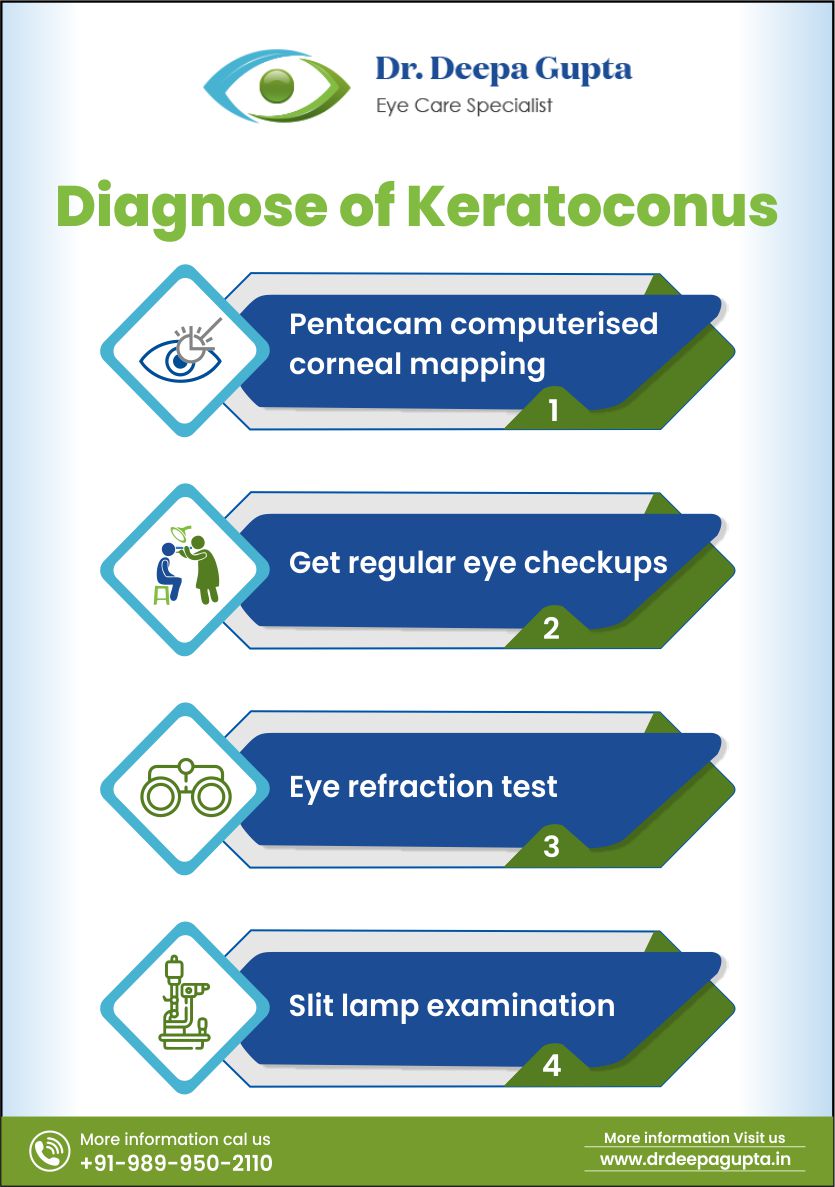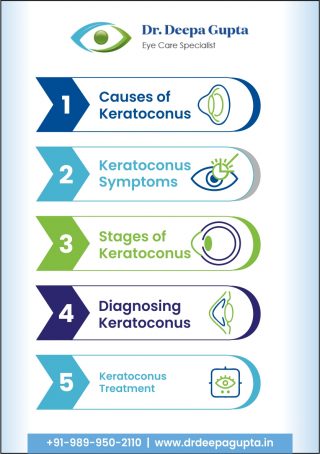Keratoconus, a condition affecting the cornea, poses challenges to clear vision. It involves a progressive thinning and bulging of the cornea, impacting daily life. Seeking treatment is crucial not only for improved eyesight but also to prevent further deterioration. As we explore the costs associated with keratoconus treatment in Gurgaon, it’s essential to recognize the significance of addressing this condition. By understanding the financial aspects, individuals can ensure a balance between effective treatment and budget considerations.
Let’s understand the various aspects of keratoconus treatment costs in Gurgaon, breaking down the expenses and offering practical insights for those seeking clarity.
Understanding the Diagnostic Phase
When it comes to tackling keratoconus, the journey often commences with a visit to an ophthalmologist. These eye specialists play a pivotal role in evaluating your eye health and formulating a treatment plan tailored to your needs.
The Role of Ophthalmologists
Ophthalmologists bring a wealth of expertise to the table, armed with the knowledge and skillset required to assess and diagnose various eye conditions. In the case of keratoconus, their role is paramount in steering the diagnostic phase toward an accurate understanding of your condition.
Diagnostic Tests and Their Significance
The diagnostic process involves a series of tests aimed at comprehensively evaluating the health of your eyes, specifically focusing on the cornea. These tests, including corneal topography, pachymetry, and aberrometry, each serve a unique purpose in unraveling the intricacies of keratoconus. The results provide valuable insights that lay the foundation for an effective keratoconus treatment strategy.
Average Costs for Initial Consultations and Basic Tests
While the costs can vary, a ballpark figure for the initial consultation with an ophthalmologist ranges from ₹500 to ₹2000. This includes the basic tests required for an accurate diagnosis. It’s important to note that these costs might fluctuate based on the healthcare facility and the specific tests deemed necessary for your case.
Ultimately, the diagnostic phase, led by skilled ophthalmologists and supported by crucial tests, forms the bedrock of understanding and addressing keratoconus. It marks the initial step towards clarity in navigating the challenges posed by this condition.
Specialized Tests: Shedding Light on Corneal Health
When looking closely at diagnosing keratoconus, specific tests become crucial in understanding the condition of the cornea. These tests provide detailed information, helping eye specialists tailor effective treatment plans.
Corneal Topography: What It Reveals
Corneal topography is an essential tool that creates a map of the cornea’s surface. It shows the shape and curvature, providing valuable insights into corneal abnormalities associated with keratoconus.
Pachymetry and Its Importance
Pachymetry measures the thickness of the cornea, a key factor in tracking keratoconus progression. Understanding these thickness variations is vital for assessing the severity of the condition.
Aberrometry: Gaining Insights into Vision Aberrations
Aberrometry focuses on identifying vision aberrations, offering detailed insights into irregularities that might affect eyesight. This test assists in developing a nuanced treatment plan to address specific vision issues linked to keratoconus.
Variable Costs for Specialized Tests
The expenses for these specialized tests can vary based on factors like test complexity and technology. On average, corneal topography can cost between ₹1000 to ₹3000, pachymetry ranging from ₹800 to ₹2500, and aberrometry averaging between ₹1200 to ₹3500. Understanding the importance of these tests and their associated costs is crucial for navigating the diagnostic landscape of keratoconus.
Exploring Treatment Options
Various treatment options are available to address keratoconus, each with its own considerations and costs. Let’s delve into these choices to understand the nuances of each.
Contact Lenses: A Common Starting Point
Contact lenses often serve as a practical starting point for managing keratoconus. Different types of lenses, including soft, rigid gas permeable, and hybrid lenses, cater to varying degrees of the condition. The fitting process involves finding the most comfortable and effective lens for your unique eye shape.
The annual costs associated with contact lenses can vary based on the type and frequency of replacement. Generally ranging from ₹5000 to ₹20,000, these costs cover not only the lenses but also fittings and follow-up appointments. Regular check-ups are essential to ensure the lenses continue to provide optimal vision correction.
Collagen Cross-Linking: Strengthening the Cornea
Collagen cross-linking is a non-invasive procedure designed to strengthen the cornea. It involves the application of ultraviolet (UV) light and riboflavin drops to induce collagen bonds, stabilizing the corneal structure.
The cost of collagen cross-linking can range from ₹15,000 to ₹40,000 per eye. Factors influencing the cost include the specific technology used, the expertise of the medical team, and the facilities provided during the keratoconus treatment.
Intacs Implants: Reshaping the Cornea
Intacs implants offer a surgical approach to reshaping the cornea. This procedure involves the placement of small plastic inserts into the corneal tissue, altering its shape and improving vision.
The estimated cost for Intacs implants ranges from ₹40,000 to ₹1,00,000 per eye. The actual costs can vary based on factors such as the surgeon’s expertise, hospital facilities, and any additional pre- or post-operative care required.
Corneal Transplant: The Last Resort
In advanced cases of keratoconus, a corneal transplant may become necessary. This surgical intervention is considered a last resort when other treatments are insufficient in restoring vision.
The keratoconus surgery cost can vary widely, ranging from ₹50,000 to ₹2,00,000 or more. Factors influencing these costs include the type of transplant, the surgeon’s experience, and the facilities provided by the hospital.
Overall, exploring keratoconus treatment options involves weighing the benefits, costs, and individual considerations. Consulting with eye specialists and understanding the unique aspects of each option can guide individuals toward the most suitable treatment path for their specific situation.
Post-Treatment Follow-ups: Monitoring Progress
After undergoing keratoconus treatment, regular follow-up visits are vital. These appointments ensure ongoing monitoring of progress and early identification of any potential issues. Consistent check-ups contribute to the long-term success of the treatment and overall eye health.
The average costs for follow-up sessions typically range between ₹500 and ₹2000. These costs cover the necessary examinations and assessments to track the effectiveness of the treatment, providing individuals with continued assurance about the health of their eyes. Regular follow-ups play a pivotal role in sustaining the positive outcomes of keratoconus treatment.
Additional Expenses: Unforeseen Costs in Keratoconus Treatment
Apart from the standard costs, unforeseen expenses can arise during keratoconus treatment. These may include medication, unexpected follow-up tests, and transportation for frequent visits. Understanding and preparing for these unexpected financial aspects is crucial for a comprehensive approach to managing overall treatment costs.
By being aware of potential additional charges, individuals can navigate their treatment journey more securely. This foresight contributes to a better-prepared and more informed approach to addressing the financial challenges associated with keratoconus.
Financial Considerations and Insurance Coverage
The financial aspect of keratoconus treatment is a significant concern for many individuals. Checking your health insurance coverage is a crucial step in managing costs. While some policies may provide partial coverage for certain procedures, others may not cover keratoconus treatment at all.
Tips for navigating insurance inquiries include:
- Confirming specific coverage for keratoconus-related procedures
- Understanding any pre-authorization requirements
- Inquiring about out-of-pocket expenses and co-payments
- Checking for in-network providers to maximize coverage benefits
Conclusion
Summing up, understanding the costs associated with keratoconus treatment in Gurgaon involves considering various factors. From diagnostic tests to specialized treatments and post-treatment follow-ups, the expenses can vary significantly. Consulting with healthcare professionals and insurance providers is crucial to creating a realistic budget and making the right choices about your eye health.
For personalized guidance, consult with Dr. Deepa Gupta, a trusted Gurgaon-based eye specialist. Schedule a consultation today for an assured step towards clearer vision and optimal eye health. Remember, your vision is an investment in your overall well-being, and careful planning ensures that you can navigate the financial aspects of keratoconus treatment with confidence.




